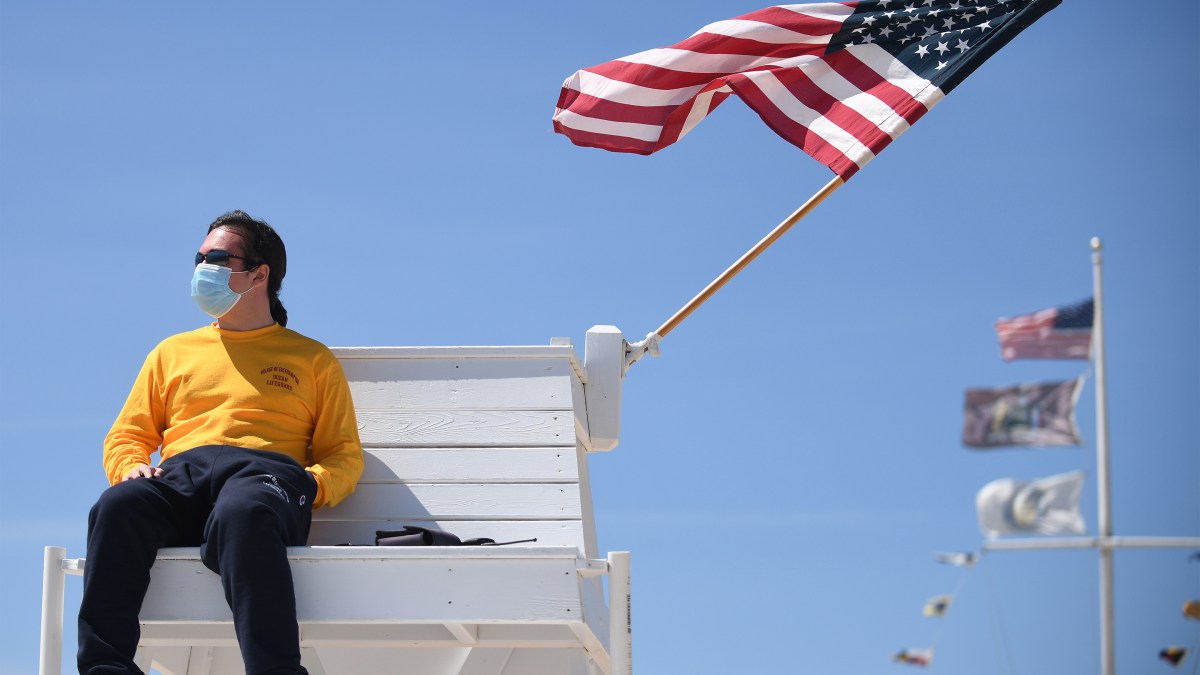
Travelers are looking for rest and relaxation when they arrive at the Cod Cove Inn on the coast of Maine. Now, they also get paperwork in the form of a certificate of compliance. “It’s a very big, long form, and basically it’s making them testify that they’ll behave when they’re here and wear their face masks and all that kind of stuff,” said Ted Hugger, the hotel’s co-owner.
Maine has some of the country’s strictest travel rules. Anyone not from Vermont or New Hampshire must show they’ve tested negative for COVID-19 or they need to quarantine for two weeks. And it’s on employees of hotels, Airbnbs and campgrounds to enforce the rules. “To have them act as the police of the state is really unreasonable and unfair,” Hugger said. “This layer of enforcement paints us as the bad guy.”
State restrictions on travelers from other states are popping up all over the country in response to the surge in COVID-19 cases. The governors of New York, Connecticut and New Jersey have imposed a two-week quarantine on visitors from 16 states where infections are mounting fast — including Alabama, Florida and Texas. In New York, violators could be fined up to $10,000.
Visitors flying into New York are given questionnaires and may be contacted by local government. People coming by train, bus or car are much more difficult to monitor. Dr. Amanda Castel, an epidemiologist at George Washington University, said that would require the work of contact tracers, law enforcement and even tollbooth operators. “That’s a lot of resources to make this work,” she said.
Castel thinks compliance comes down to social responsibility, like during stay-home orders. “People did it because they understood the importance of staying home to prevent the spread of the virus,” she said.
But as we’ve seen with masks, not everyone will follow the rules. Florida has had travel restrictions in place for a while. And the Florida Restaurant and Lodging Association has been working with businesses on how to de-escalate situations. “Not singling out a guest using phrases like you must, you should, you shall,” said Geoff Luebkemann, senior vice president of education and training. “But rather, as a matter of public health we ask that…”
Add policing public health to the growing list of things hotel and restaurant workers probably didn’t think they’d signed up for.
Related Stories
Will the federal government extend the extra COVID-19 unemployment benefits?
It’s still unclear. Congress and President Donald Trump are deciding whether to extend the extra $600 a week in unemployment benefits workers are getting because of the pandemic. Labor Secretary Eugene Scalia believes the program should not be extended, and White House economic adviser Larry Kudlow said the additional money is disincentivizing some workers from returning to their jobs. Democrats want to keep providing the money until January.
As states lift restrictions, are people going back to stores and restaurants?
States have relaxed their restrictions, and many of us have relaxed, too. Some people have started to make exceptions for visiting restaurants, if only for outdoor dining. Some are only going to places they trust are being extra cautious. But no one we’ve talked to has really gone back to normal. People just aren’t quite there yet.
Will surges in COVID-19 cases mean a return to lockdowns?
In many areas where businesses are reopening, cases of COVID-19 are trending upwards, causing some to ask if the lockdowns were lifted too soon, and if residents and businesses might have to go through it all again. So, how likely is another lockdown, of some sort? The answer depends on who you ask. Many local officials are now bullish about keeping businesses open to salvage their economies. Health experts, though, are concerned.
You can find answers to more questions here.
As a nonprofit news organization, our future depends on listeners like you who believe in the power of public service journalism.
Your investment in Marketplace helps us remain paywall-free and ensures everyone has access to trustworthy, unbiased news and information, regardless of their ability to pay.
Donate today — in any amount — to become a Marketplace Investor. Now more than ever, your commitment makes a difference.
July 02, 2020 at 05:37AM
https://ift.tt/2NLTPPB
States often rely on businesses to enforce travel restrictions - Marketplace
https://ift.tt/31vRPml
Travel

No comments:
Post a Comment